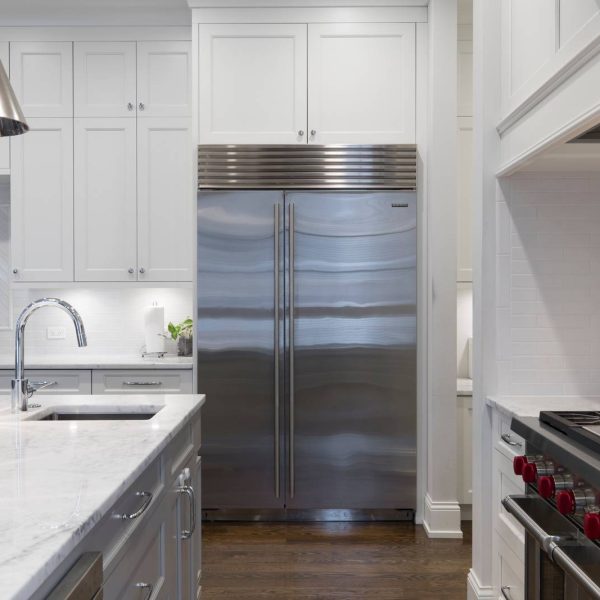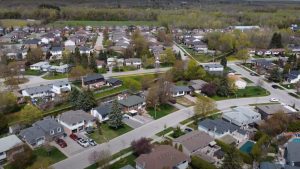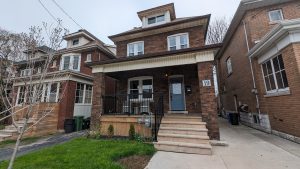How to disclose Property Defects when selling in Burlington, ON
Property defects disclosure is an important element when listing and selling a home in Burlington, ON, as it aims to prevent mischievous activities that commonly occur during the sale of real estate. Property defects disclosures should be made by the seller to alert the buyer so they can make an informed decision about purchasing the property, while a failure to disclose defects can have damaging repercussions in court. This article will detail the importance of property defects disclosure and the legal implications of withholding such information.
Living in Burlington – Benefits and Opportunities
Living in Burlington, ON has its benefits, from the great amenities to its scenic natural outlooks. The economy of Burlington is growing and consistently shows signs of further development. Burlington is also home to education institutions such as Brock University and the local business district. The area is rich in culture and filled with parks, trails, waterfront and other activities.
Property Disclosure Requirements
When a homeowner in Burlington, ON decides to sell a property, they are legally required to disclose to the buyer any known or suspected defects in or on the property. This includes any defects that could materially affect the value of the property, such as a defect that would affect the structural integrity of the home or a defect of a heating, ventilation or air conditioning system. It is important for the disclosure to be provided to the buyer in writing at the time of the sale.
What is Considered a Defect
Property defects vary from place to place and should not be assumed when selling a home in Burlington. Examples of defects could be faulty wiring, mould growth near the sink, dripping taps, broken windows, old central air units, siding issues etc. In addition, legal issues such as responsibility for shared facilities should be disclosed, such as utilities or waste disposal services. These are considered to be material defects.
The Legal Implications of Not Disclosing Defects
If a seller fails to disclose property defects to the buyer, they can face serious legal repercussion. Such repercussions can include punitive damages, rescission of the purchase, specific performance or breach of contract and even criminal prosecution as defined by the Sales of Goods Act. If a seller eventually becomes aware of a defect but fails to disclose, it would be considered discovery of a hidden defect which may hold the same implications.
Potential Consequences of Fraudulent Disclosure
If a seller does disclose the defects, but does so fraudulently, this too can have repercussions. For instance, the seller might make a false statement to lead the buyer away from an issue or intentionally omit certain details. In this case, the seller would be liable for the entire cost of repairs in trust or prove a set of mitigating factors. Ultimately, sellers should provide honest and open disclosure when selling a property, as this could save them from a potential of legal ramifications.
Conclusion
When selling a home in Burlington, ON, it is important for the seller to provide property defects disclosure to the buyer in accordance with the law. This is a requirement of Ontario law, and failure to disclose defects can lead to legal repercussions. For sellers, providing honest, open and comprehensive disclosure is the best way to ensure the buying process goes smoothly and protect oneself from any legal implications.
FAQs
Q. Why Is Property Disclosure Important?
A. Property Disclosure is important as it helps the buyer make an informed decision regarding the purchase of the property. It is also a legal requirement under Ontario law to disclose any known or suspected defects.
Q. What Kind Of Defects Are Common In A Home?
A. Common home defects can include faulty wiring, mould growth, dripping taps, broken windows, old central air units, siding issues, and legal issues such as responsibility for shared facilities.
Q. What Legal Consequences Could A Seller Face For Not Disclosing Defects?
A. If a seller fails to disclose property defects to the buyer, they can face serious legal repercussions such as punitive damages, rescission of the purchase, specific performance or breach of contract, and even criminal prosecution.
Q. What Damages Could A Seller Face For Fraudulently Disclosing Defects?
A. If a seller fraudulently discloses defects in order to deceive the buyer, they could ultimately be liable for the entire cost of repair. This could include complete rescission of the contract, or proving a set of mitigating factors.
Q. What Are The Benefits Of Living In Burlington?
A. Burlington, ON is a great place to call home, offering many amenities, growing economy and excellent educational institutions. Additionally, the area offers plenty to do with its rich culture, various parks and trails, and beautiful waterfront.




















